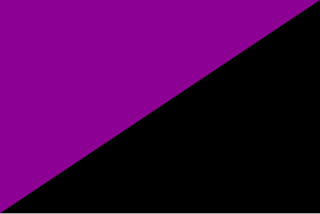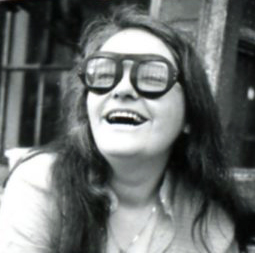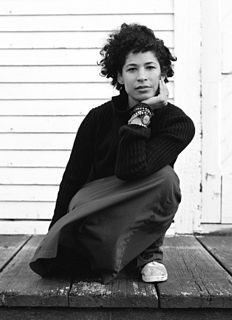Related Research Articles
Feminism is a range of socio-political movements and ideologies that aim to define and establish the political, economic, personal, and social equality of the sexes. Feminism incorporates the position that societies prioritize the male point of view, and that women are treated unjustly within those societies. Efforts to change that include fighting against gender stereotypes and establishing educational, professional, and interpersonal opportunities and outcomes for women that are equal to those for men.

Anarcha-feminism, also referred to as anarchist feminism, is a system of analysis which combines the principles and power analysis of anarchist theory with feminism. Anarcha-feminism closely resembles intersectional feminism. Anarcha-feminism generally posits that patriarchy and traditional gender roles as manifestations of involuntary coercive hierarchy should be replaced by decentralized free association. Anarcha-feminists believe that the struggle against patriarchy is an essential part of class conflict and the anarchist struggle against the state and capitalism. In essence, the philosophy sees anarchist struggle as a necessary component of feminist struggle and vice versa. L. Susan Brown claims that "as anarchism is a political philosophy that opposes all relationships of power, it is inherently feminist".

Donna J. Haraway is an American Professor Emerita in the History of Consciousness Department and Feminist Studies Department at the University of California, Santa Cruz, United States. She is a prominent scholar in the field of science and technology studies, described in the early 1990s as a "feminist and postmodernist". Haraway is the author of numerous foundational books and essays that bring together questions of science and feminism, such as "A Cyborg Manifesto: Science, Technology, and Socialist-Feminism in the Late Twentieth Century" (1985) and "Situated Knowledges: The Science Question in Feminism and the Privilege of Partial Perspective" (1988). Additionally, for her contributions to the intersection of information technology and feminist theory, Haraway is widely cited in works related to Human-Computer Interaction (HCI). Her Situated Knowledges and Cyborg Manifesto publications in particular, have sparked discussion within the HCI community regarding framing the positionality from which research and systems are designed. She is also a leading scholar in contemporary ecofeminism, associated with post-humanism and new materialism movements. Her work criticizes anthropocentrism, emphasizes the self-organizing powers of nonhuman processes, and explores dissonant relations between those processes and cultural practices, rethinking sources of ethics. Haraway criticizes the Anthropocene because it generalizes us as a species. However, she also recognizes the importance of it recognizing humans as key agents. Haraway prefers the term Capitalocene which defines capitalism's relentless imperatives to expand itself and grow, but she does not like the theme of irreversible destruction in both the Anthropocene and Capitalocene.

Gloria Marie Steinem is an American feminist journalist and social political activist who became nationally recognized as a leader and a spokeswoman for the American feminist movement in the late 1960s and early 1970s.

Katherine Murray Millett was an American feminist writer, educator, artist, and activist. She attended Oxford University and was the first American woman to be awarded a degree with first-class honors after studying at St Hilda's College, Oxford. She has been described as "a seminal influence on second-wave feminism", and is best known for her book Sexual Politics (1970), which was based on her doctoral dissertation at Columbia University. Journalist Liza Featherstone attributes the attainment of previously unimaginable "legal abortion, greater professional equality between the sexes, and a sexual freedom" in part to Millett's efforts.

Third-wave feminism is an iteration of the feminist movement. It began in the United States in the early 1990s and continued until the rise of the fourth wave in the 2010s. Born in the 1960s and 1970s as members of Generation X and grounded in the civil-rights advances of the second wave, third-wave feminists embraced diversity and individualism in women and sought to redefine what it meant to be a feminist. The third wave saw the emergence of new feminist currents and theories, such as intersectionality, sex positivity, vegetarian ecofeminism, transfeminism, and postmodern feminism. According to feminist scholar Elizabeth Evans, the "confusion surrounding what constitutes third-wave feminism is in some respects its defining feature."
The women's liberation movement (WLM) was a political alignment of women and feminist intellectualism that emerged in the late 1960s and continued into the 1980s primarily in the industrialized nations of the Western world, which effected great change throughout the world. The WLM branch of radical feminism, based in contemporary philosophy, comprised women of racially- and culturally-diverse backgrounds who proposed that economic, psychological, and social freedom were necessary for women to progress from being second-class citizens in their societies.

Lesbian Connection (LC ) is an American grassroots network forum publication "for, by and about lesbians". Founded in 1974 by the lesbian-feminist collective Ambitious Amazons, the magazine is run by the Elsie Publishing Institute, a Michigan-based 501(c)(3) nonprofit corporation. In 2016, its total revenue was $520,406. Lesbian Connection is published bimonthly and although it has a suggested yearly subscription, it is notable for offering it on a sliding scale basis. LC is made available to incarcerated women, and mailed free of charge upon request to those unable to make a financial contribution.

Elizabeth Shippen Green was an American illustrator. She illustrated children's books and worked for publications such as The Ladies' Home Journal, The Saturday Evening Post and Harper's Magazine.

The feminist art movement in the United States began in the early 1970s and sought to promote the study, creation, understanding and promotion of women's art. First-generation feminist artists include Judy Chicago, Miriam Schapiro, Suzanne Lacy, Judith Bernstein, Sheila de Bretteville, Mary Beth Edelson, Carolee Schneeman, Rachel Rosenthal, and many other women. They were part of the Feminist art movement in the United States in the early 1970s to develop feminist writing and art. The movement spread quickly through museum protests in both New York and Los Angeles, via an early network called W.E.B. that disseminated news of feminist art activities from 1971 to 1973 in a nationally circulated newsletter, and at conferences such as the West Coast Women's Artists Conference held at California Institute of the Arts and the Conference of Women in the Visual Arts, at the Corcoran School of Art in Washington, D.C..
Nightwood Theatre is Canada's oldest professional women's theatre and is based in Toronto. It was founded in 1979 by Cynthia Grant, Kim Renders, Mary Vingoe, and Maureen White and was originally a collective. Though it was not the founders' original intention, Nightwood Theatre has become known for producing feminist works. Some of Nightwood's most famous productions include This is For You, Anna (1983) and Good Night Desdemona (1988). Nightwood hosts several annual events including FemCab, the Hysteria Festival, and Groundswell Festival which features readings from participants of Nightwood's Write from the Hip playwright development program.

Griselda Frances Sinclair Pollock is an accomplished art historian and cultural analyst of international, postcolonial feminist studies in visual arts and visual culture. Since 1977, Pollock has been one of the most influential scholars of modern art, avant-garde art, postmodern art, and contemporary art. She is a major influence in feminist theory, feminist art history, and gender studies. She is renowned for her innovative feminist approaches to art history which aim to deconstruct the lack of appreciation and importance of women in art as other than objects for the male gaze.
Feminism in Italy originated during the Italian renaissance period, beginning in the late 13th century. Italian writers such as Christine de Pizan, Moderata Fonte, Lucrezia Marinella, and others developed the theoretical ideas behind gender equality. In contrast to feminist movements in France and United Kingdom, early women's rights advocates in Italy emphasized women's education and improvement in social conditions.
Mary Beth Edelson was an American artist and pioneer of the feminist art movement, deemed one of the notable "first-generation feminist artists." Edelson was a printmaker, book artist, collage artist, painter, photographer, performance artist, and author. Her works have been shown at the Museum of Modern Art, the Smithsonian American Art Museum, and the Museum of Contemporary Art in Chicago.
Feminism in Argentina is a set of movements aimed at defining, establishing, and defending equal political, economic, and social rights and equal opportunities for women in Argentina. Although some women have been considered precursors—among them Juana Manso and Juana Manuela Gorriti—feminism was introduced to the country as a result of the great European immigration wave that took place in the late 19th and early 20th century. The first feminists did not form a unified movement, but included anarchist and socialist activists, who incorporated women's issues into their revolutionary program, and prestigious freethinker women, who initially fought for access to higher education and, later, legal equality with men. Despite the efforts of the first-wave feminists, Argentine women did not acquire the right to vote until 1947, during Juan Perón's first government. His highly popular wife, Eva, championed women's suffrage and founded and ran the nation's first large-scale female political party, the Female Peronist Party. Although she refused to identify herself as a feminist, Eva Perón is valued for having redefined the role of women in politics.
Noi donne is an Italian language monthly feminist magazine published in Rome, Italy. It is one of the most significant feminist publications in the country.

Rosa Rosà was a writer and author associated with the inter-war Italian Futurist movement. She is renowned for her first short novel, Una donna con tre anime.

Luciana Percovich is an Italian non-fiction writer, a teacher, a translator and director of a series of books on women’s history and spirituality. She was born in Gorizia, Italy in a Mitteleuropean Italian speaking family forced to leave Fiume, Rijeka at the end of World War II, with cultural and geographical roots in Austria and Dalmatia, she spent her childhood and adolescence in Gorizia attending Classical studies. At the age of 18, she went to Milan to complete her education, and there she graduated in 1972. She has been defined as "a traveller between worlds and a weaver of space-time connections for her ability of embracing distant wide horizons with a loving insight".
Whatever I've done, it's been conceived within women's relations, in presence of women's bodies and in the flowing of awakened women's emotions.
References
- ↑ Primavera Fisogni (2013). Dehumanization and Human Fragility. Bloomington, IN: Author House. p. 16. ISBN 978-1-4918-8499-7.
- 1 2 3 "Leggere Donna". Luciana Tufani Editrice. Archived from the original on 8 February 2016. Retrieved 27 October 2015.
- ↑ "Feminist art magazines or women artists magazines and newsletters". KT Press. Retrieved 27 October 2015.
- 1 2 Delia Gaze, ed. (1997). Dictionary of Women Artists: Artists, J-Z. London; Chicago: Fitzroy Dearborn Publishers. p. 44. ISBN 978-1-884964-21-3.
- ↑ Carol Lazzaro-Weis (2011). From Margins to Mainstream: Feminism and Fictional Modes in Italian Women's Writing, 1968-1990. Philadelphia, PA: University of Pennsylvania Press. p. 9. ISBN 978-0-8122-0670-8.